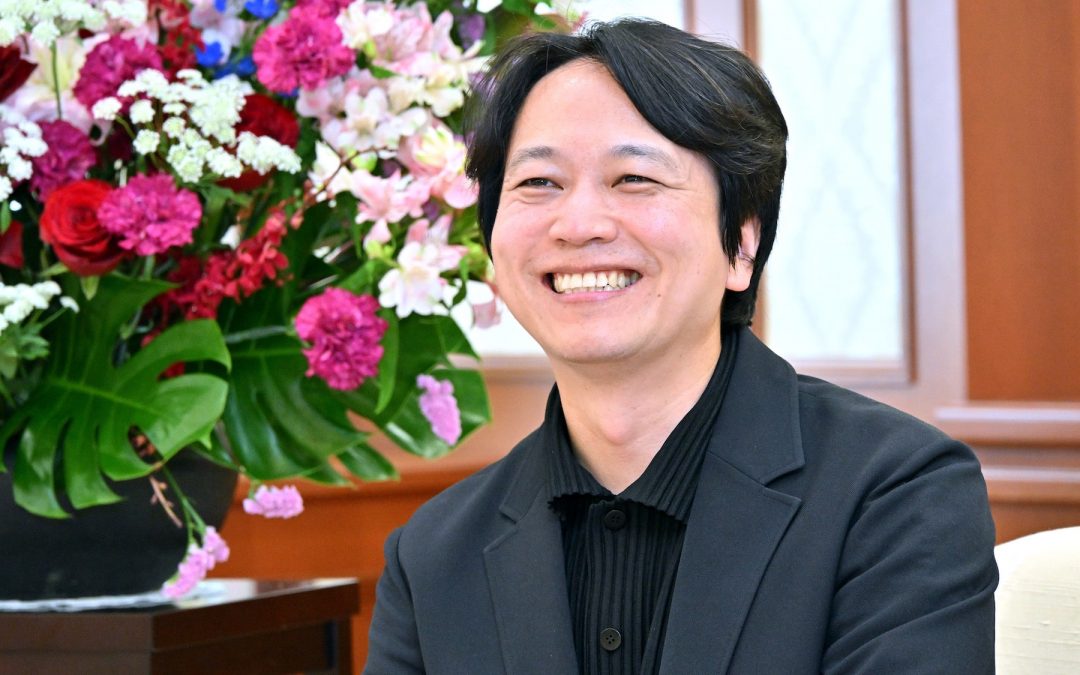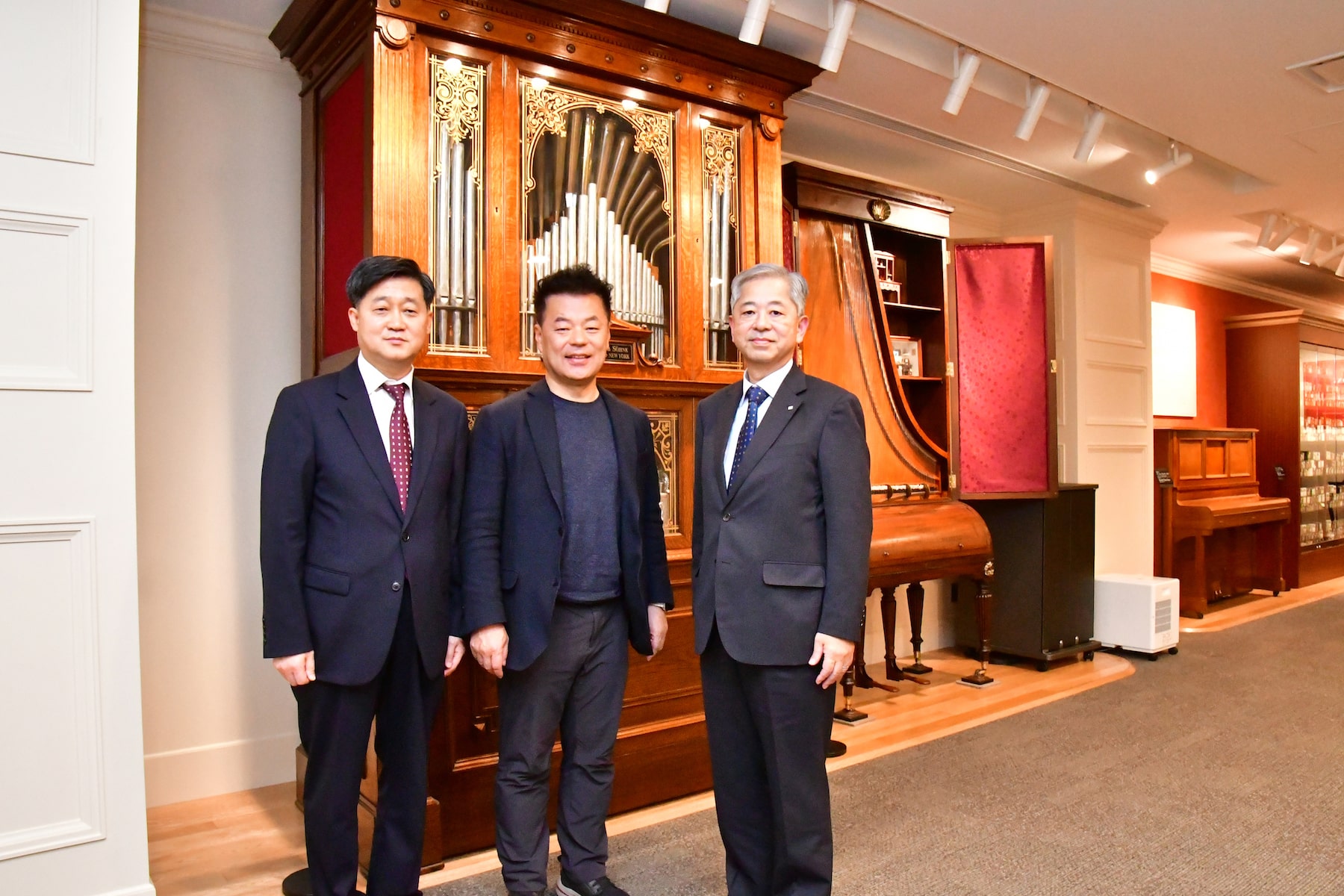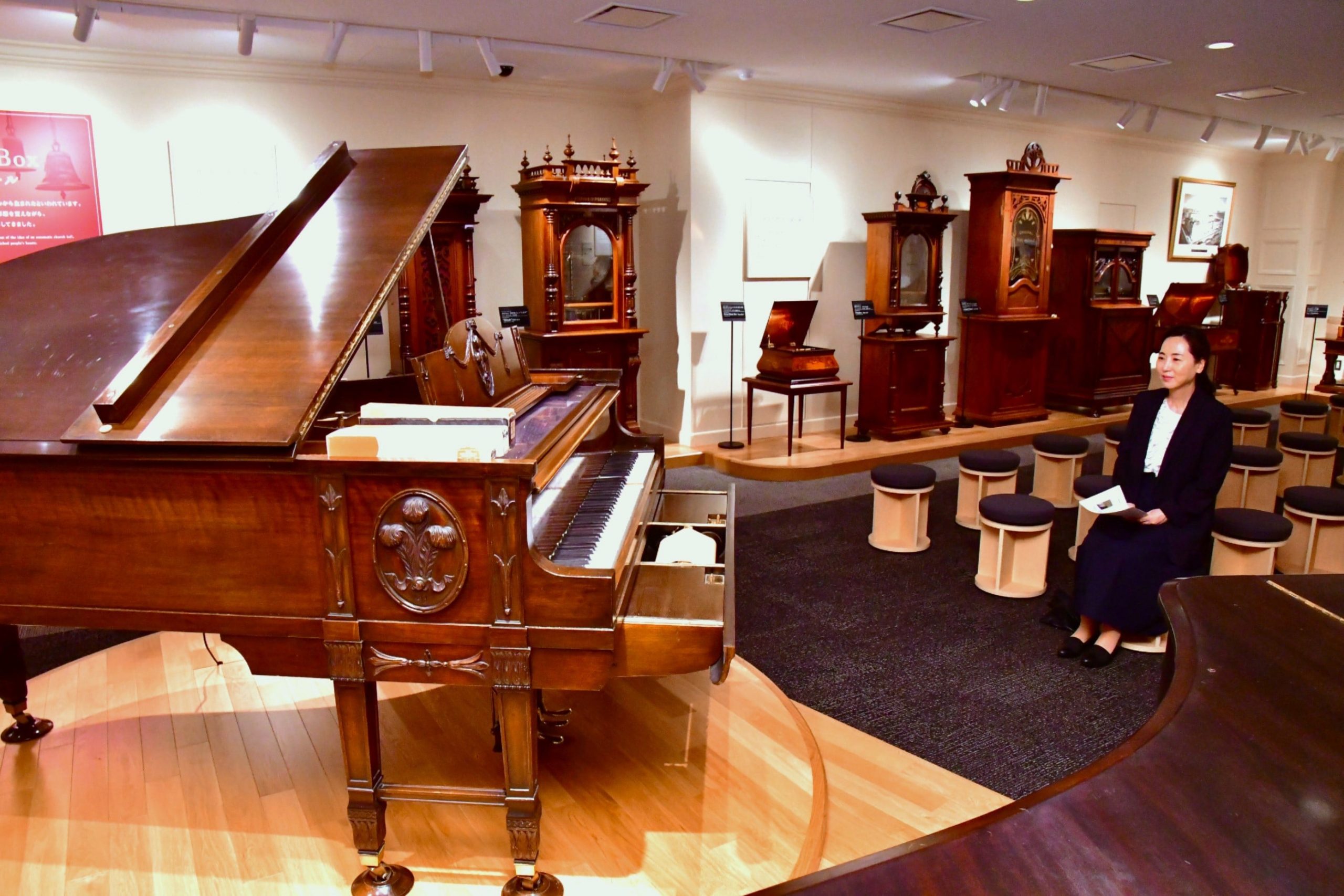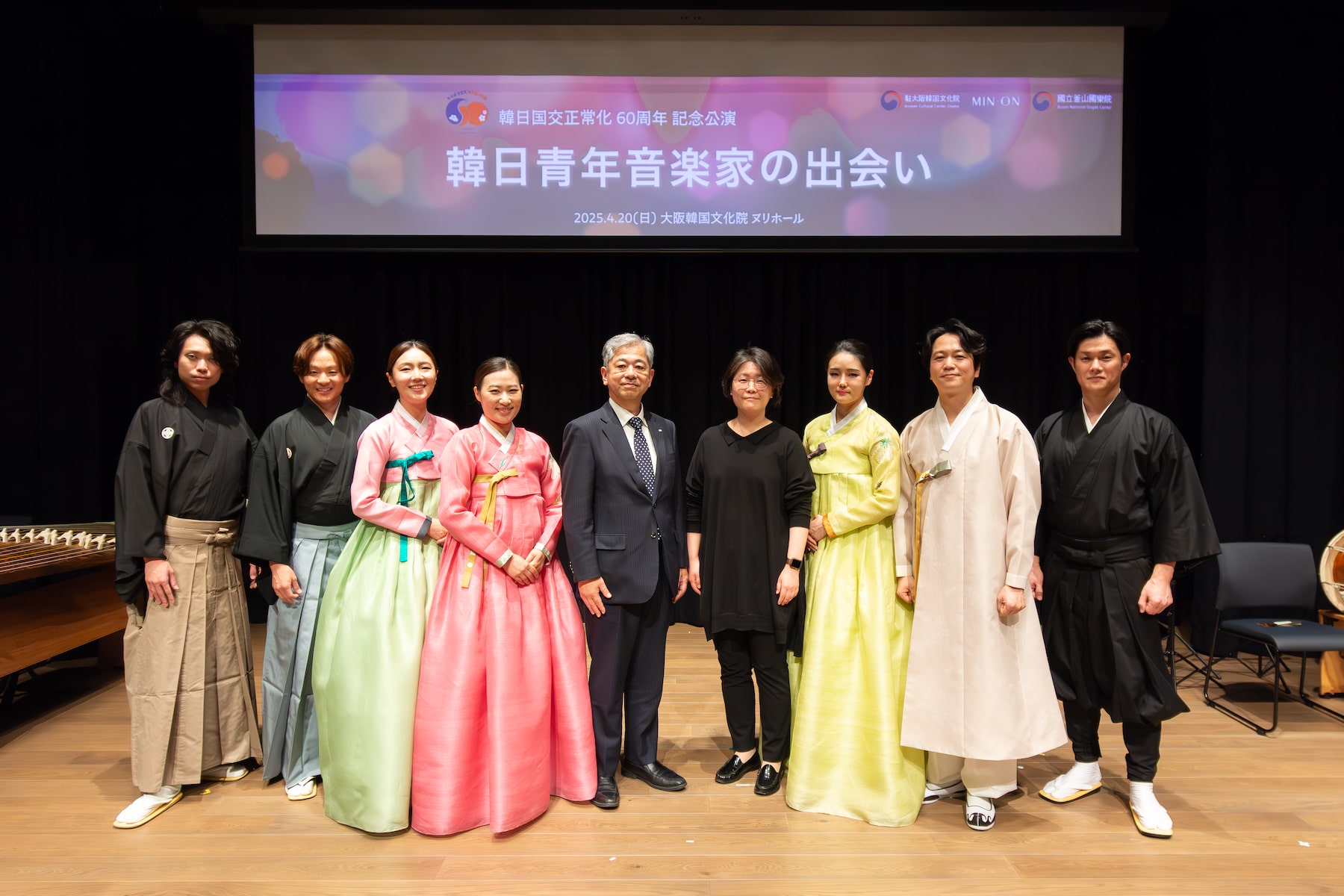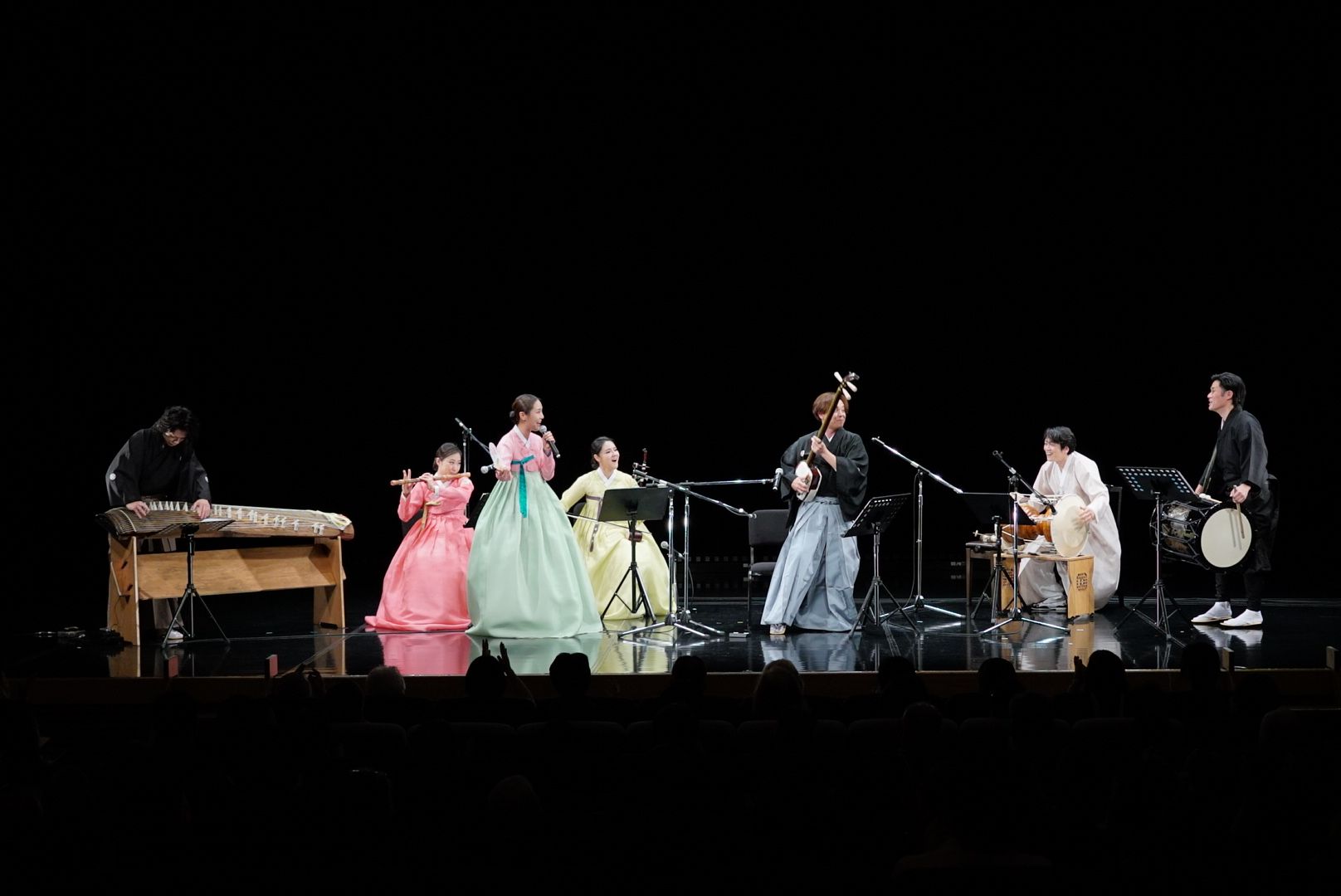To commemorate the 60th anniversary of the normalization of diplomatic relations between Korea and Japan, the “Korea – Japan Youth Concert 2025” was held this April, bringing together young musicians from both countries for a special cultural exchange through music.
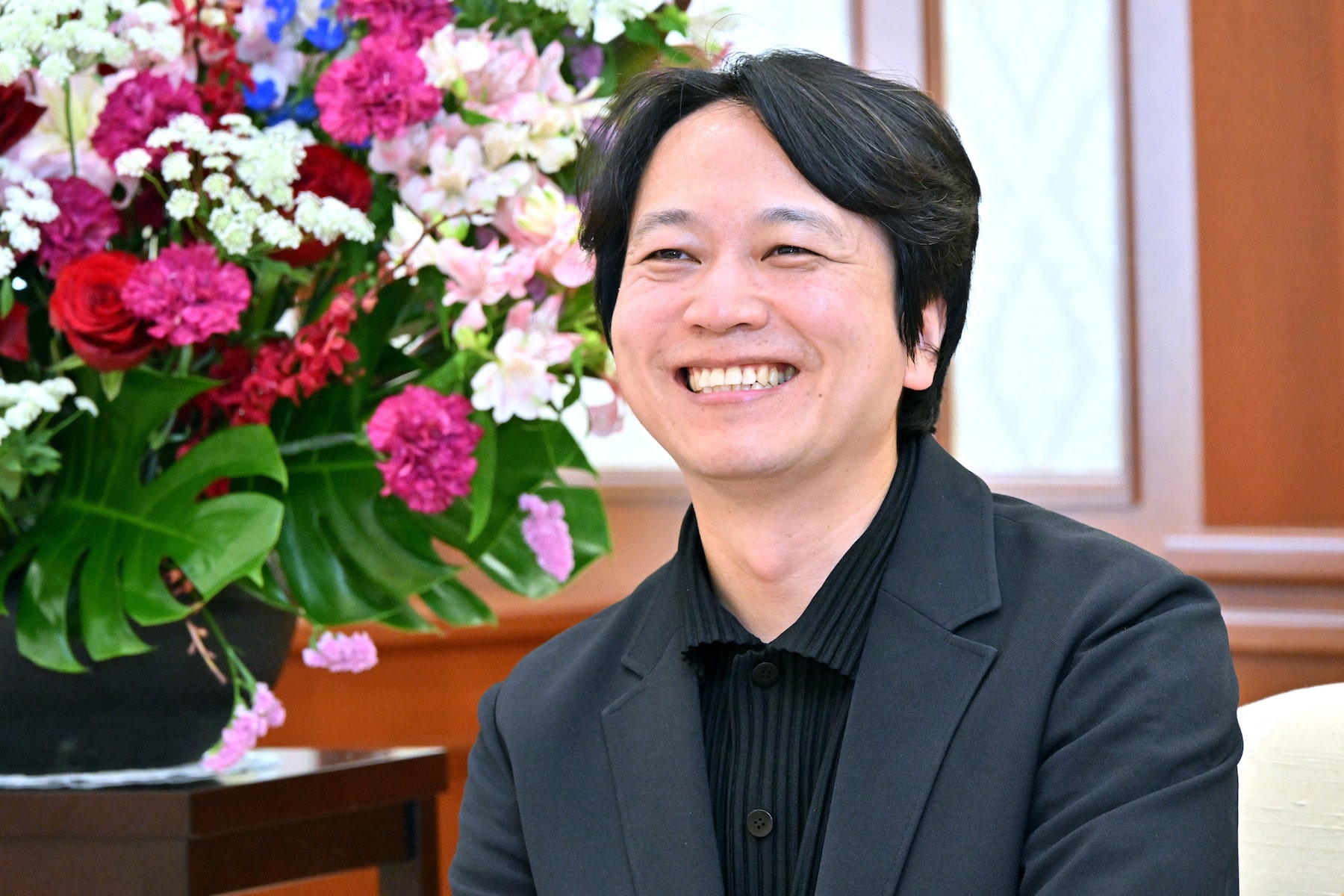
During their stay, we had the opportunity to interview Lee Jin-Hee of the Busan National Gugak Center.
Profile
Lee Jin-Hee / Janggu
Director of Instrumental Music Ensemble (Percussion)
Busan National Gugak Center
Lee Jin-Hee completed both his master’s and doctoral programs in Korean Music at Pusan National University, where he also earned his undergraduate degree in the same field. He currently serves as a lecturer at Pusan National University and is the director of the Instrumental Music Ensemble (Percussion) at the Busan National Gugak Center.
- Full Concert Video: Korea – Japan Youth Concert 2025
Min-On: Thank you for sharing your time to be interviewed. Firstly, how was your experience performing for the Japanese audience?
Lee Jin-Hee: Firstly, I would like to sincerely thank the audience who welcomed and enthusiastically supported us in Tokyo and Osaka. That young musicians from Korea and Japan got together and engaged in such meaningful musical exchange communicating heart-to-heart was much more enjoyable than I had ever expected. At the rehearsals, we were able to hit it off and at times there were very intense moments when we felt like our blood was flowing together. Personally, I thoroughly enjoyed it and I can say without doubt that all our members were happy throughout their stay in Tokyo and Osaka.
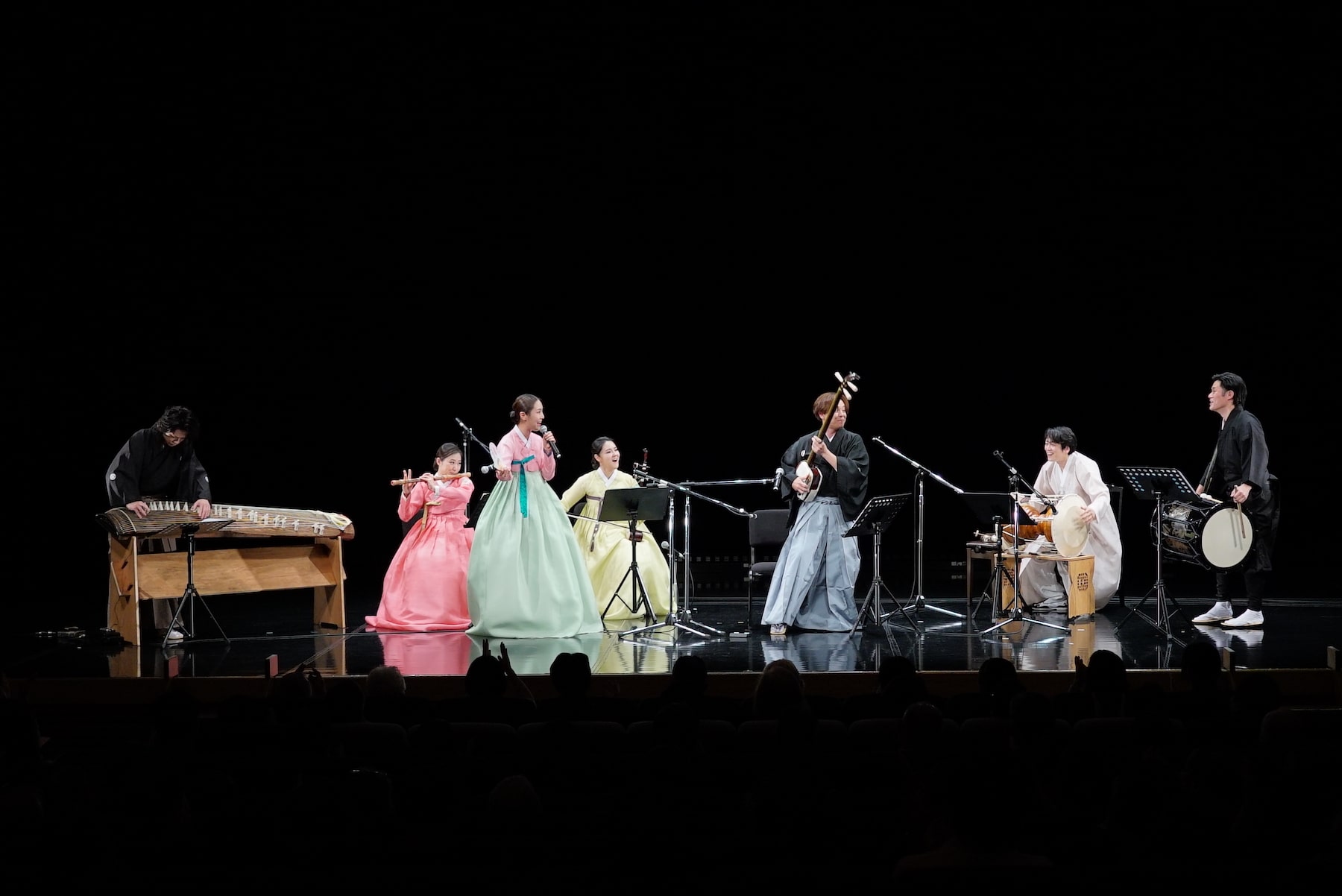
Min-On: Based on your experience performing in these concerts, what similarities or differences did you observe between Korean and Japanese musical cultures?
Lee Jin-Hee: First, we performed “Arirang,” “Donpan-bushi” and “Uodouji” together and I noticed that there were many similarities in “Arirang” and “Donpan-bushi.”
When singing “Arirang” and “Donpan-bushi” together it seemed as though we were having a conversation with each other which I really enjoyed. Although the music and rhythm were different, I felt that our hearts and emotions were the same. While listening to Uodouji, the rhythms were different but the interaction we had was filled with consideration for one another, making it a very meaningful and enjoyable experience.
Min-On: The key theme of these concerts is “cultural exchange between the youth of Korea and Japan.” What are your thoughts on the importance of such exchange, especially through traditional music?
Lee Jin-Hee: Of course it’s very meaningful. And it’s a fact that music is something that can be appreciated even without speaking the same language. We can communicate through eye contact and gestures. In that sense, I feel music is the fastest ways to communicate with one another.
During this visit to Japan, Korean and Japanese youth were able to connect with each other and share their traditional cultures through music. I was especially happy that they were able to do so with traditional music. That we performed each other’s traditional music made it even more meaningful.
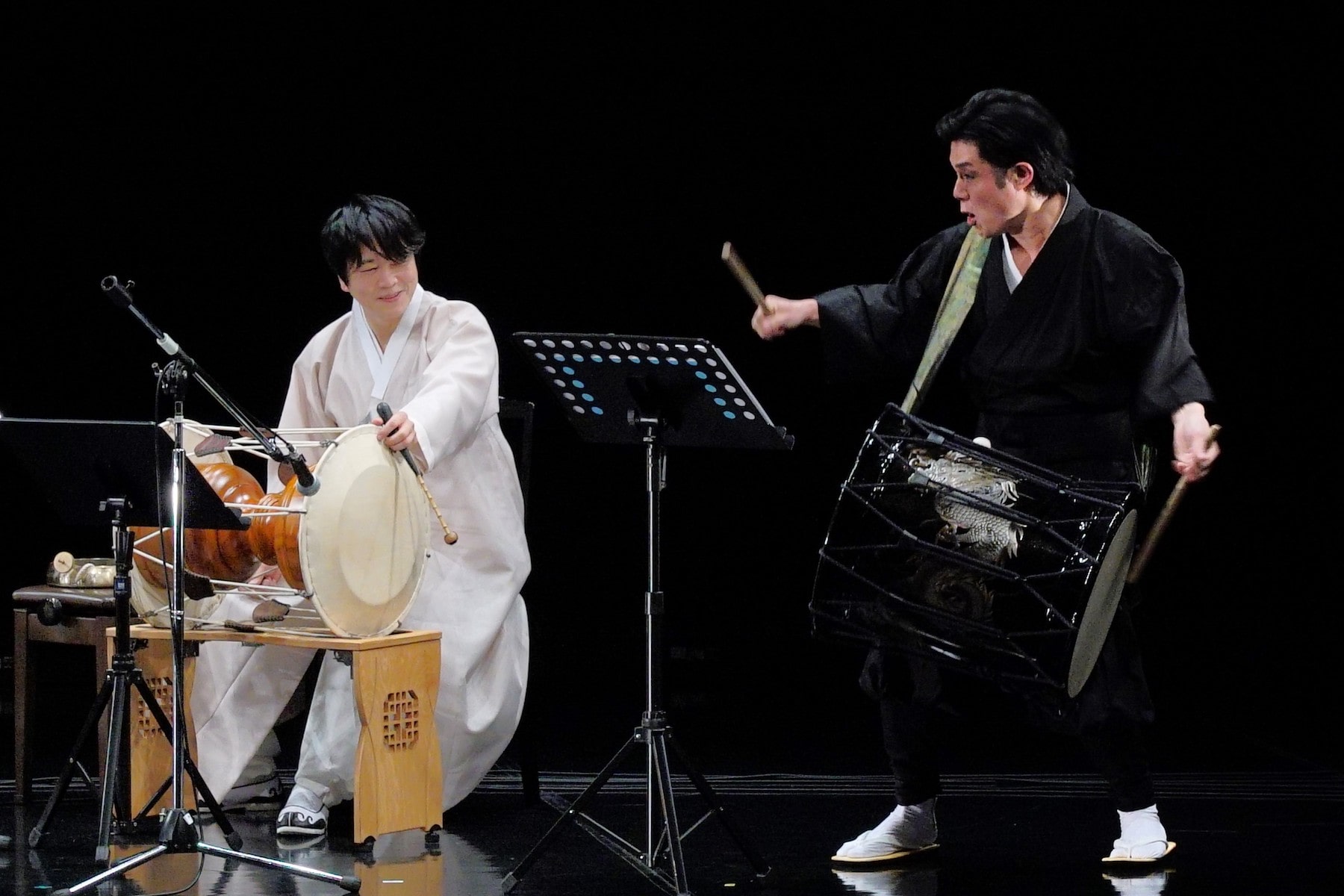
Min-On: Could you share any interesting anecdotes with your work involving community activities using traditional instruments at the Busan Gugak Center?
Lee Jin-Hee: The National Busan Gugak Center opened in 2008 and continues its activities to date. As for me, I have been working there since its launch in 2008 and am one of the longest-serving members. That is why I am well versed with the kind of activities the Busan Gugak Center has been engaging in. What I remember most clearly is the work involved in restoring traditional music that is disappearing in our country, especially in Busan and the Yeongnam region.
That is why I think it was great that we were able to stage these performances through which we were able to connect the hearts of the people of our country and those around the world. One of the main reasons the Busan Gugak Center was founded was to promote cultural exchange through performances with Japan, China, and other Asian countries. Last year, too, we performed with another Japanese team. And this year we were able to perform in Japan which is indeed significant.
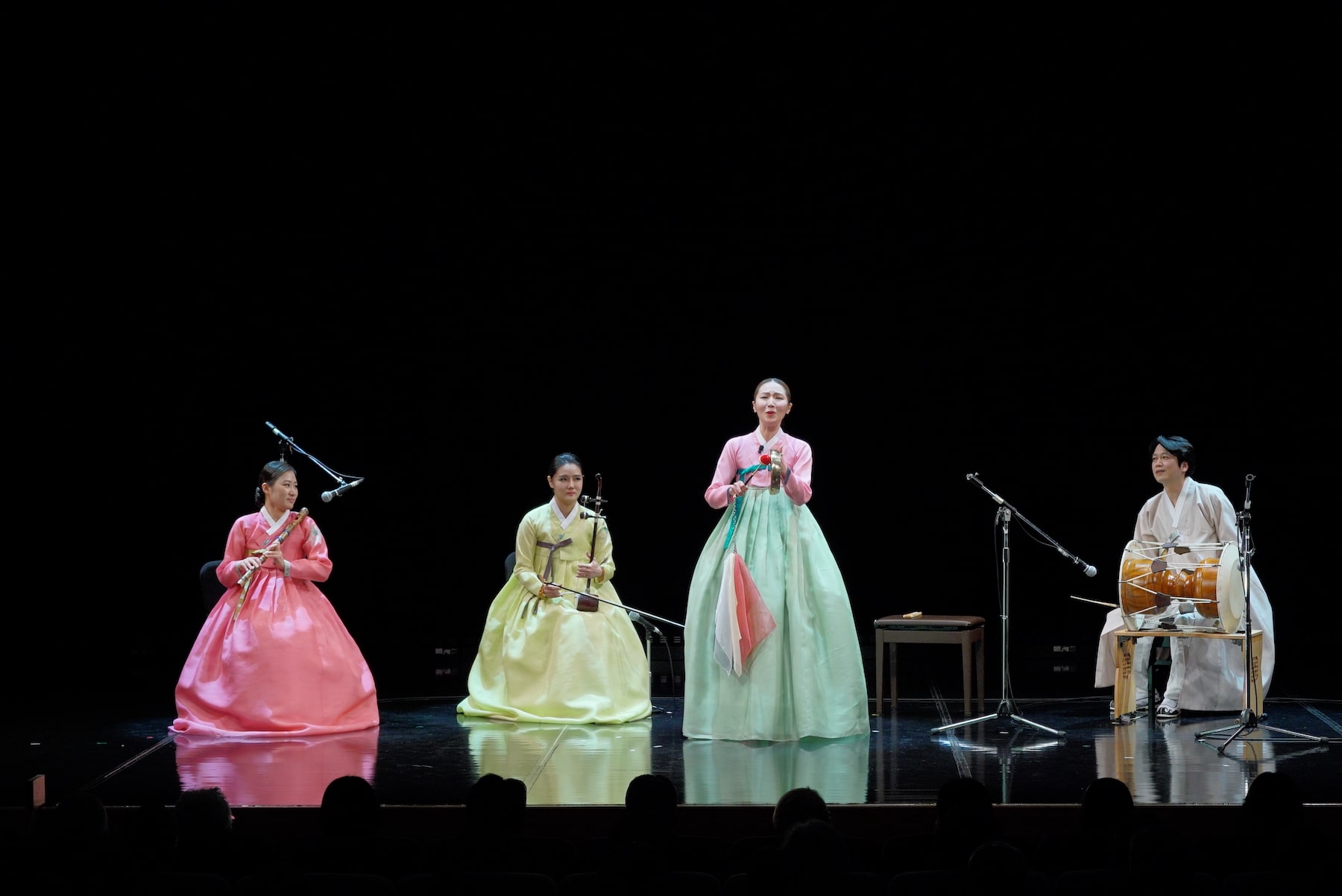
Min-On: The Gugak Experience Hall opened in 2023 and features digital exhibits and hands-on events. It looks very exciting from the photos and videos we’ve seen. For visitors going to Busan from abroad, what would you like them to know or experience at the Gugak Experience Hall?
Lee Jin-Hee: As you may know, the Gugak Experience Hall opened adjacent to the National Busan Gugak Center in 2023. There they have traditional music, videos related to traditional music and dance as well as hands-on events.
For example, there’s a system where you can listen to sounds one by one, or holograms where when you dance, it’s visualized in digital image. We also have hands-on events such as making miniature models of Janggu or Gayageum. As various events are held separately, for those interested, I sincerely hope you will visit the center in Busan and experience it.
Min-On: What initially inspired you to pursue a career in traditional Korean music, particularly as a performer of traditional percussion instruments?
Lee Jin-Hee: I had opportunities to listen to Janggu sounds from a young age, and while in middle school I used to hear these sounds when people used to cheer at soccer and baseball games.
At first, I wasn’t really interested in it. In fact, I found it a bit noisy. But as I joined the audience cheering at the games, I found myself enjoying the music. I started to cheer at baseball and soccer games in school and found it fun. It was really interesting listening to the sounds and actually making the sounds. I felt a sense of joy in expressing what I felt through music and with instruments so I decided to continue on this path where I still am today, joyfully thinking about music.
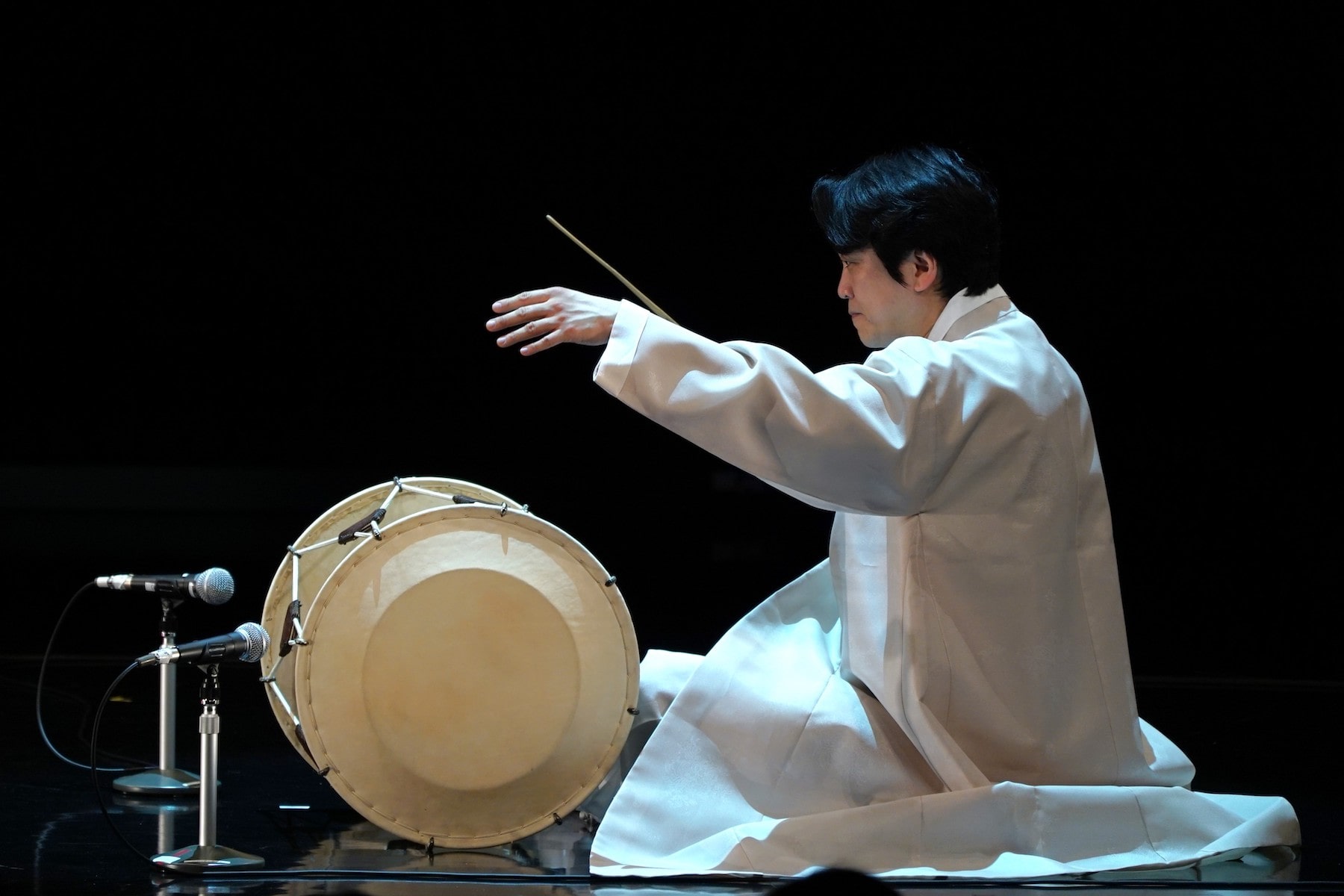
Min-On: Lastly, could you share a message with our readers and to those who came to the concert?
Lee Jin-Hee: First, I’m very grateful for bringing together young musicians from Korea and Japan like this.
As for someone who performs traditional music, if I could say one thing to the readers, it is that traditional music is not somewhere in the far distance. It’s a lot closer and easier to access to than you may imagine. I truly hope our music can bring joy to people and perhaps even some comfort.
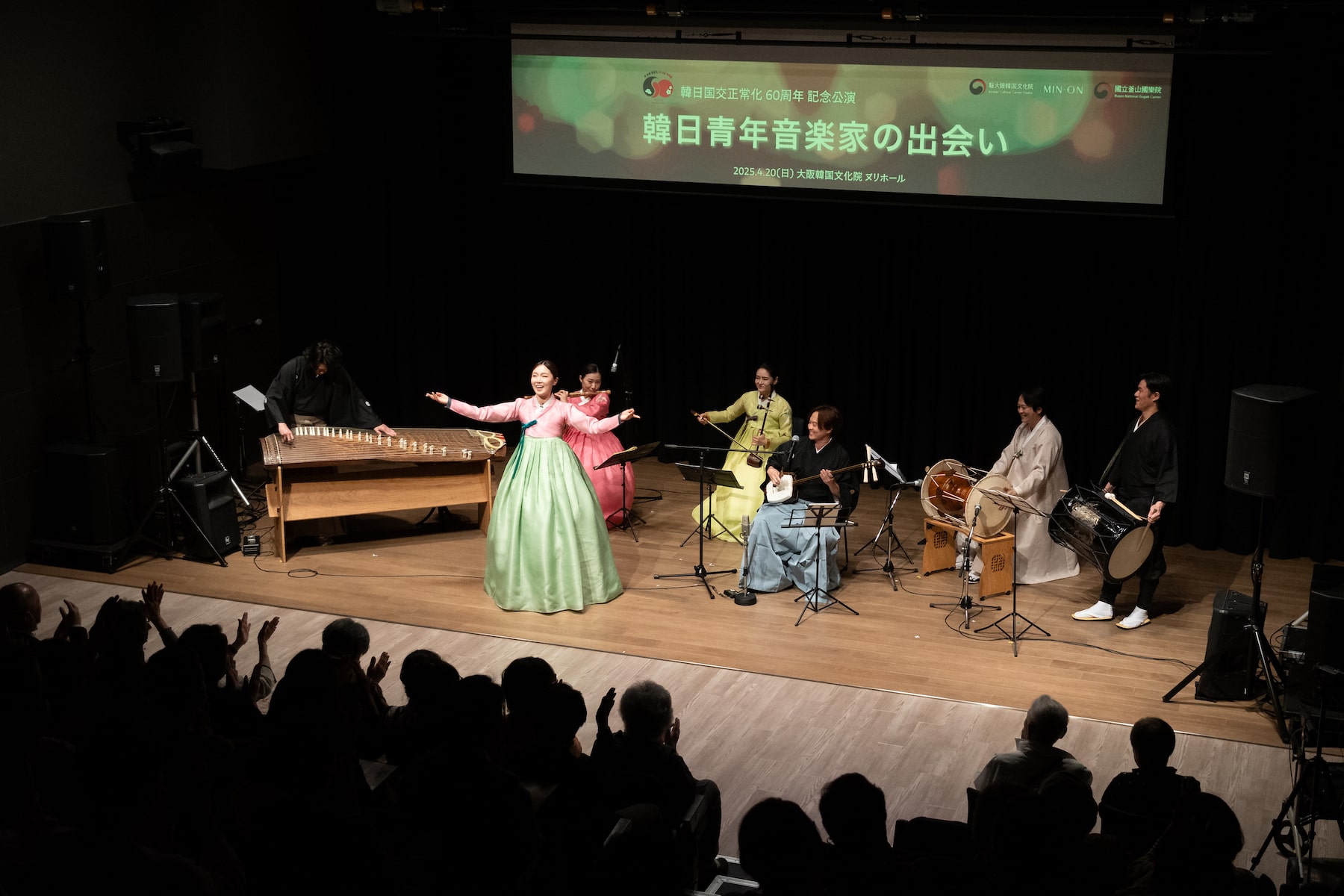
For future Korea-Japan exchanges, if Min-On Concert Association can continue to support us like they did this time, I would like to introduce many more excellent musicians. I would be grateful if you could create opportunities for us to engage in musical exchange again.
To the readers, I wish to say that I love you and to please continue to follow our activities. Thank you very much.
◆ Please enjoy the full interview below:
◆ Full Concert Video: Korea – Japan Youth Concert 2025
◆ Min-On Music Journey: South Korea Edition
The Korea Edition of the Min-On Music Journey beautifully showcases the charm of Korean culture and music.
Embark on this cultural journey through the following link:
If you have any comments regarding this article, please feel free to email us at: publicrelations@min-on.or.jp
Min-On Concert Association
–Music Binds Our Hearts–


